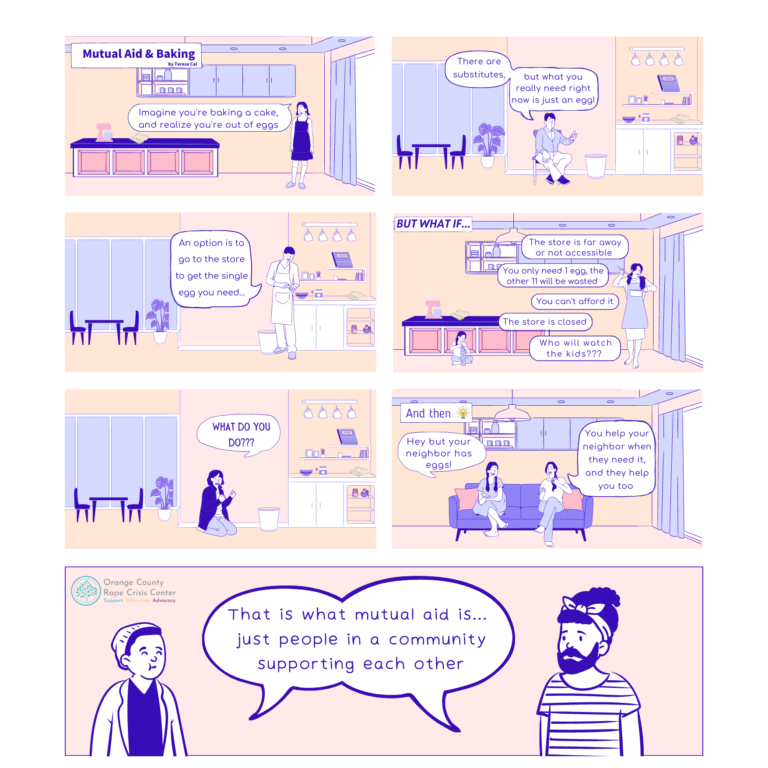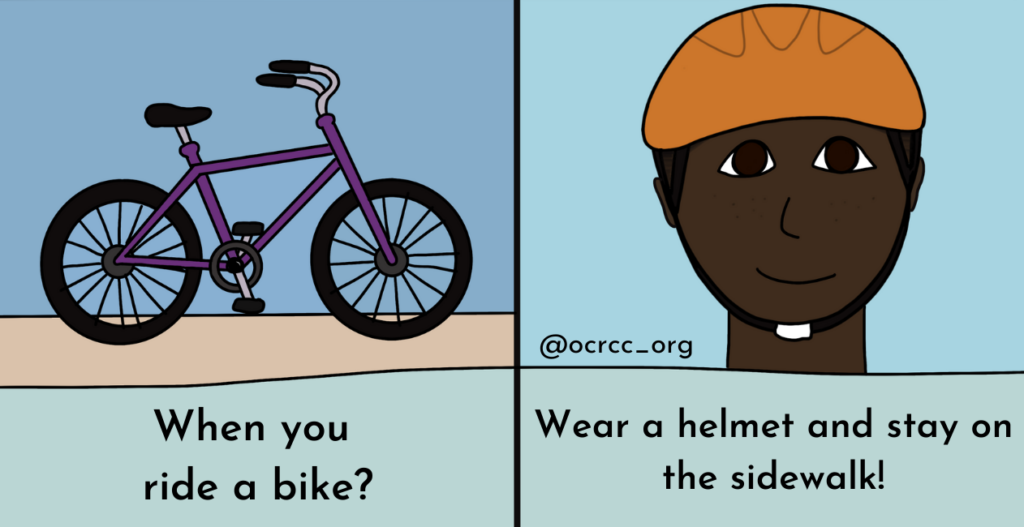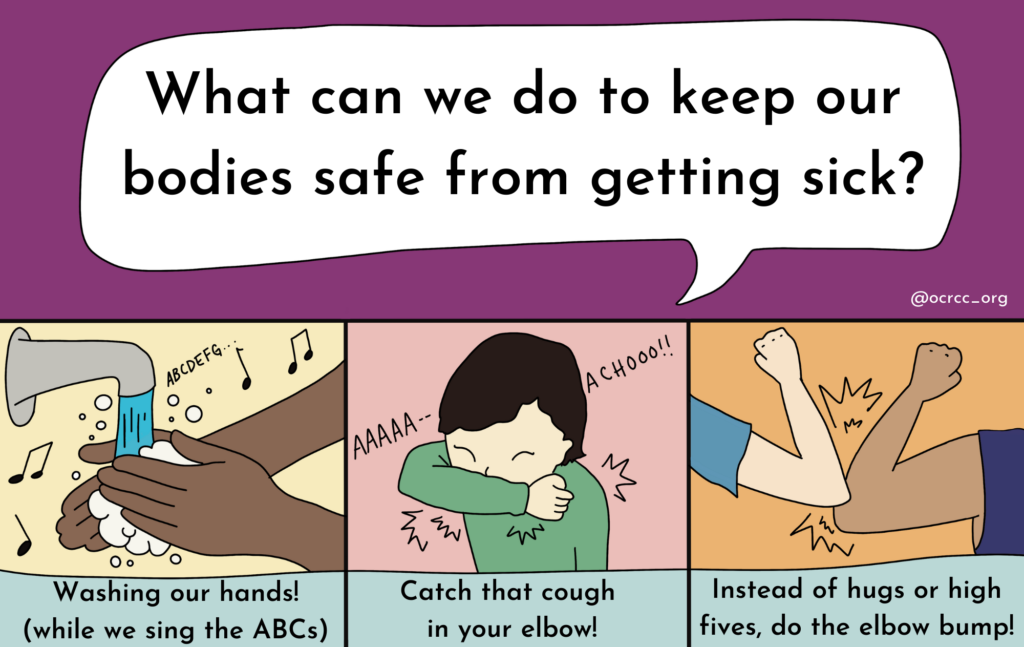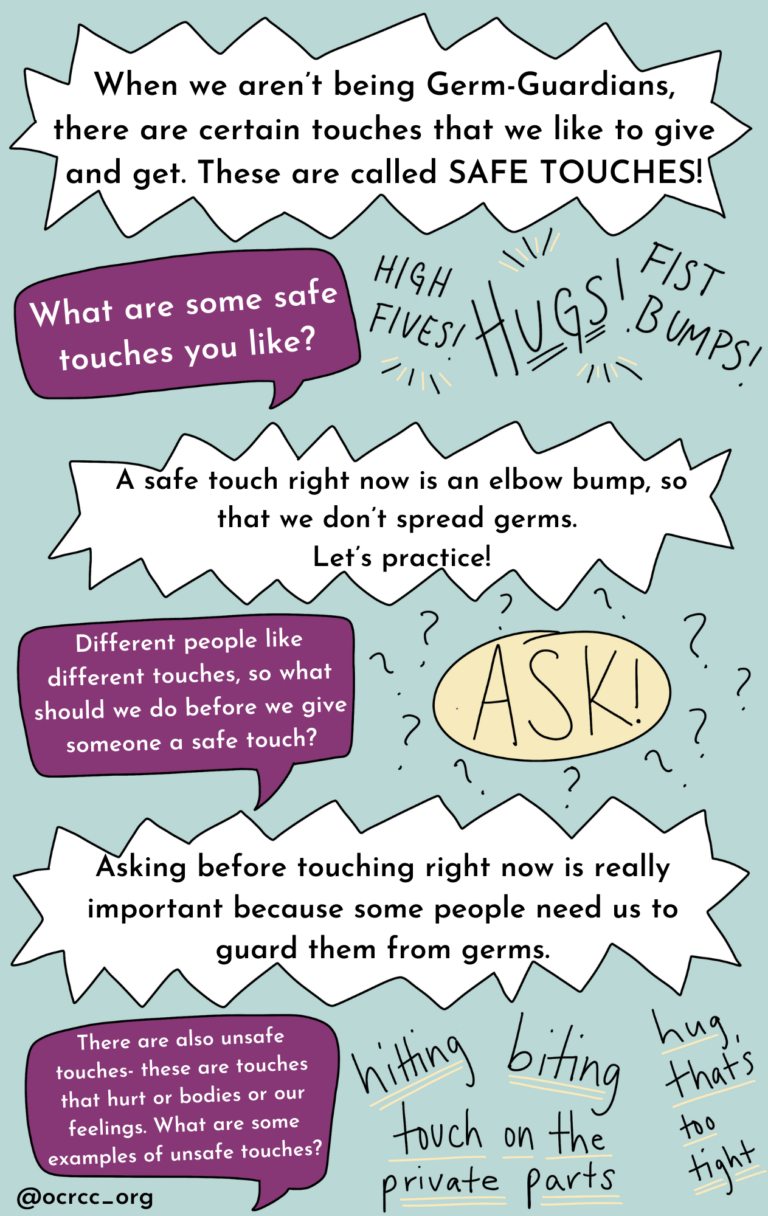In the wake of the Coronavirus pandemic, many children and adults are experiencing heightened anxiety and concerns about safety. Between school closures, economic uncertainty, and a news cycle that seems to release new (and more terrifying) information every 30 seconds, many parents may be reeling right now, wondering—
How can I talk to my child about Coronavirus?
What will I do to help my children stay sane and grounded while they are cut off from their friends and routines?
How can I keep myself, my family, and my community safe?
There is so much that feels uncertain right now. But one thing we can control is having ongoing, open communication with our kids about their concerns, what we can do to keep each other safe, and how we will support each other through this. Silence around any issue only increases worry; while sharing and speaking openly with kids (and other adults in your life!) can increase feelings of support, connectedness, and safety. We can also use this time of heightened awareness around boundaries, body safety, and prevention as an opportunity to talk with children about how to keep their bodies safe from abuse.
OCRCC’s SafeTouch program is a child sexual abuse prevention curriculum that has delivered safety and empowerment workshops to students in Orange County, NC for the past 40 years. We use kid-friendly, age-appropriate language to talk with children about how they have a right to feel safe in their bodies and that they can always tell a trusted adult if someone gives them a touch that makes them feel uncomfortable or unsafe. In my research to understand how we can have supportive discussions with kids about Coronavirus, I found that the approach to discussing disease prevention is very similar to how we talk with kids about sexual abuse prevention. So, in that spirit, here are 5 tips for talking to your child about Coronavirus and keeping their bodies safe from abuse:
1. Address your own anxiety first. Seek support.
Feeling completely overwhelmed right now? You are not alone. Ideally, this might be a time to slow down on productivity and spend more quality time with family and loved ones at home, but that’s just not the reality for many families right now. Lack of access to childcare, losing jobs and income, food insecurity, housing insecurity, and inaccessible medical care may be just some of the difficult barriers facing families right now.
With all the pressure you may be under, it’s ok to not feel ready to have these conversations. Give yourself permission to tell your child, “I’m not sure how to answer that right now, but I’ll think about it and get back to you” or even, “I need some space right now, but I can talk to you about that in 30 minutes.” Ultimately, it’s best to take care of ourselves as adults first before embarking on a potentially challenging conversation with our kids, because children easily pick up on our anxiety and distress (which becomes their anxiety and distress).
If you feel overwhelmed at the thought of discussing any safety issues with your child, try reaching out to your support network first to discuss your anxiety around these conversations. Brainstorm ideas or practice having these conversations with other parents first. If you are a survivor of child sexual abuse yourself, you may feel triggered having these discussions with your children—know that you are not alone and the OCRCC 24-hour phone, text, and chat helplines are always available to you for support.
Also, don’t forget—for the (many) times when you might be struggling to remain calm and carry on, there are tons of online media and resources that can be used as a conversation starter so that you can focus on taking some deep breaths (or getting done one of the million things you probably have on your to-do list right now!)
PBS: How to Talk to Your Kids About Coronavirus (includes videos, apps, and games)
Just for Kids: A Comic Exploring the New Coronavirus
A Kids Book About COVID-19
Amaze.org has amazing age-appropriate videos for children and teens about puberty, sexual health, preventing abuse, and more.
You Are A Special Person: Coloring book for children ages 4-6 that includes a story about safe touches, unsafe touches, and what to do if you get a touch that makes you feel confused or unsafe (say no, get away, and tell someone!) Available in English, Spanish, Burmese, and Karen.
2. Do your research. Share accurate information.
Children may be hearing misinformation about Coronavirus from peers or not-so-reliable media sources. There is also a lot of misinformation and inaccurate myths that some kids (and adults!) may believe about sexual abuse.
Educate yourself first about the facts around these issues so that you can share accurate information with your children that will reassure them and help keep them safe. Ask your kids directly what information they are hearing about Coronavirus, correct any misinformation, and set time limits on consuming news media or scrolling through social media (this is helpful for kids and adults right now)!
We also want to have open conversations with kids about body safety to make sure they have access to accurate information. One common misconception about child sexual abuse is that perpetrators are most often strangers. In reality, 90% of children are abused by someone they know. Understanding this fact can aid us in preventing abuse. In talks with your child, make it clear to them that no one should be giving them an unsafe or confusing touch on their private parts, even if it’s another family member, teacher, friend, or anyone else they know. Have discussions with your child about the difference between someone helping them with their private parts and an unsafe touch—and use concrete examples:
“Is it ok for your parents to help you change your diaper? Yes, because that’s to keep you safe and healthy. Is it ok for your friend to go with you into the bathroom? No, because that’s private time, but a trusted adult like mommy could help you in the bathroom if you asked for help. Is it ok for a doctor to help you with your private parts? Yes, but mommy stays in the room with you so you can feel safe and comfortable with the doctor.”
Talking to Children About COVID-19 (Coronavirus): A Parent Resource (Available in English, Spanish, Amharic, Chinese, Korean, French, and Vietnamese)
Facts about Child Sexual Abuse from Darkness to Light
3. Focus the conversation on safety.
Some parents may worry about scaring their child if they talk openly about topics such as sexual abuse or a global pandemic. Even though it’s valid to feel anxious or scared about these topics, the conversation itself does not have to be scary. Remember that it’s comforting for children to know there is a safe adult in their life who will answer their questions in a calm, reassuring manner, while silence around a topic will just cause more fear to take hold. If an adult can affirm for a child that it’s OK to talk and share their feelings about any topic, it can go a long way in reducing the child’s anxiety and increasing feelings of safety.
When having discussions about Coronavirus, remember to keep the conversation age-appropriate by using clear, simple language and concrete examples. Children get lost if we use too many words and need to connect the information you’re sharing with them to their own experience. Some painful feelings could come up during these conversations. Children might feel disappointed right now about cancelled school events, birthday parties, or fun trips, or scared about the health and safety of other family members. It’s important to validate their feelings and let them know it’s ok to be upset about what’s happening. You can help them brainstorm some healthy and safe ways they could express what they’re feeling (draw a picture, scream into a pillow, cry, talk it out, etc.) If they are expressing lots of anxiety or asking the same questions over and over, remind them that adults at their school, home, and in their community are working hard to keep them safe.
Give clear examples of things that we can’t do right now to stop the spread of germs, and then brainstorm specific activities that you still can do together- “We can’t go to the gym or school right now because of germs, and we did have to cancel your sister’s birthday party, which was really sad. But we can still make pancakes in the morning and walk the dog together! What ideas do you have about things we can still do?”
Similarly, when discussing body safety with kids, focus the conversation on clear, concrete examples about safe and unsafe touches, using simple, age-appropriate language.












